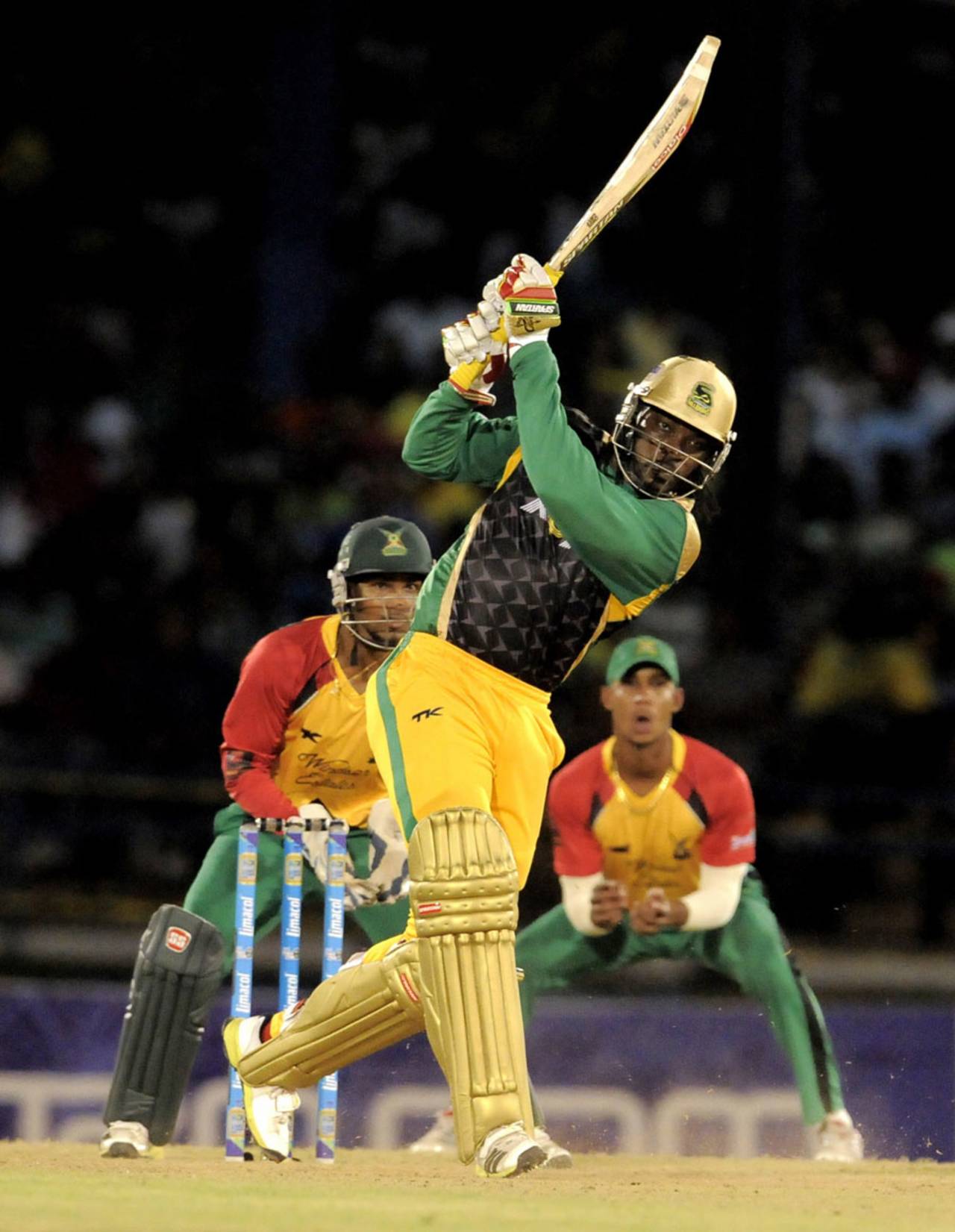What football rights have to do with the future of cricket
BT has paid a stratospheric amount for the rights to the Champions League. Cricket will probably feel the knock-on effects in time
Jon Hotten
12-Nov-2013

If rights acquirers are paying top dollar for football rights, it ultimately spells greater demand for T20 mercenaries • Getty Images
No one remarked on the psychological oddity of Australia's captain "launching" his diary of a losing Ashes series as he prepares his men to play another one in nine days' time (it's hard to imagine him handing complimentary copies around the rooms - "All right lads, here's how we stuffed it up a couple of months ago…") but then we have become almost completely inured to the forces that commerce applies to sport.
News of a TV deal for rights to broadcast the UEFA Champions League in Britain may seem distant and unattached to world cricket, with its eyes on Mumbai and Brisbane, but its meaning should not go unacknowledged.
BT, the telecoms company, has paid almost £900m to take those rights from satellite subscription company BSkyB and free-to-air broadcaster ITV, from 2015. It's twice as much as BSkyB had paid for them, a sum described as "mad" and "an extraordinary level of inflation that has never been seen in any deal in the developed world".
The market, though, has had its say. On Monday morning, £1.4bn was wiped from BSkyB's share price. The reason for that is not the loss of the rights to show Rosenberg v Viktoria Plzen on Sky Sports 4 on a wet Tuesday night. It's because it signals a forthcoming war for television sports rights that has the feel of some kind of commercial armageddon. Sport will be the battleground, but at its root the war is about broadband services - both BT and BSkyB offer them. The sale of the Champions League rights is merely the symbolic shooting of Archduke Ferdinand, the catalyst for a conflict on a bewildering scale.
Possession of the Champions League rights is meaningless without other stuff to show in the many vacant hours when Dynamo Moscow aren't limbering up to play Schalke in an exciting Group F clash. Thus BT is, according to one report, planning "a major raid" on more rights to fill the hole in its summer schedule, and those rights include three ICC events: the World Cup, the World Twenty20 and the World Test Championship, all of which are available from 2015; plus, in the longer term, rights held by the England and Wales Cricket Board that are under contract to BSkyB until 2017 with an option of a further two years. Those include all of England's home Test matches, and all domestic competitions. Then there is the IPL, currently shown in Britain on the outpost of ITV4; the Big Bash; and who knows what new glories to come.
Ultimately the detail is relevant only to the suits. The butterfly-beating-its-wings effect is what counts. A fight over UK broadband rights means money for cricket rights holders on a scale they've not seen before. What impact will that have on the game, its players and its viewers, and on its future?
The soulless nature of top-echelon football lingers like Banquo's ghost over other sports, a game on an unalterable journey away from its roots. It is the ultimate example of the free market, with its virtues - the "product", as those suits so love to call it, is inarguably good - but also with its many and varied vices.
How will cricket change, with the ICC and the ECB and the BCCI even more afloat with cash? How will its allegiances develop, and its fractures widen, and who will have and who will have not?
There is an imaginable future stuffed with made-for-TV tournaments, mercenary players, ever-changing broadcasters and broke punters. We are already in a world where the Ashes, those apparent "jewels" of the game, are played back to back so as not to crowd a southern hemisphere summer set aside for another endless World Cup, where entire Test series can be elbowed aside by internecine squabbles, where gun players can consider a freelance future. In the West Indies there are giant stadia built by overseas governments that lie barely used. In England, county chairmen have developed their grounds so that they can bid for the rights to host the national team, the only side that can be guaranteed to fill them - weather permitting.
The symbiotic relationship between broadcaster and sport has brought many benefits, but rarely without schism. It's a relationship that has been delicately balanced. The long-term health of the sport has, until now, usually been in the interest of its rights holder. But when it becomes just a tool to leverage other parts of the business, that relationship becomes something different and more variable.
This weekend, in Britain, the butterfly beat its wings. Come back in a few years' time to feel their weight.